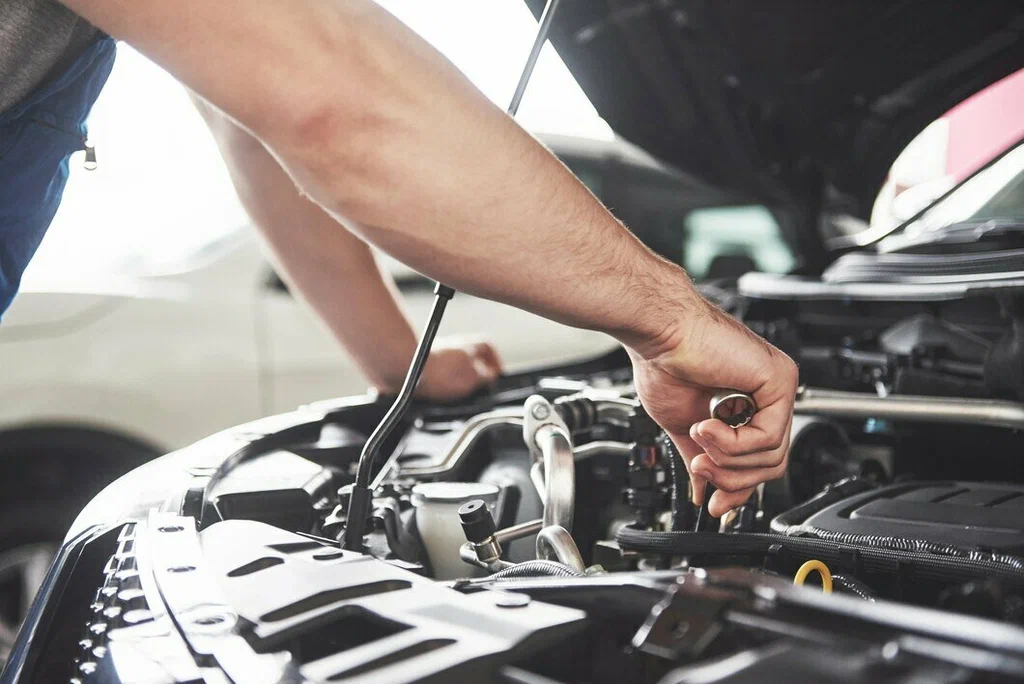Emergencies on the road can happen unexpectedly, leaving you stranded or unable to continue your journey. Knowing what to ensure during an emergency, Mercedes Repair in Birmingham can save time, money, and stress. Here’s a comprehensive guide on the key steps and precautions to take if you find yourself in such a situation.
Ensure Your Safety First
Before addressing vehicle repairs, prioritise safety for yourself, your passengers, and other road users.
Turn on Hazard Lights:
Make your vehicle visible to other drivers to prevent accidents.
Use Warning Devices:
Place perceptive triangles or flashes around your car, specifically at night or in low-visibility circumstances. Avoid standing near moving traffic or under poorly lit areas while inspecting the issue.
Assess the Problem
Understanding the nature of the problem is crucial in determining the next steps.
Common Emergency Issues:
Flat Tire:
Check for visible punctures or low air pressure.
Dead Battery:
Look for signs like dim lights or an unresponsive engine.
Overheating Engine:
Watch for steam or a high-temperature gauge.
Brake Failure:
Identify unusual noises, reduced brake responsiveness, or leaks under the car.
Quick Assessment Tips:
- Listen for unusual sounds.
- Smell for burning odours or fuel leaks.
- Check dashboard warning lights for clues.
If you’re unsure, avoid attempting complex repairs on your own.
Ensure Proper Tools Are Available
A well-stocked emergency repair kit in your car can be vital.
Essential Tools:
- Spare tyre and jack for tyre changes.
- Jumper cables for a dead battery.
- Basic toolkit (wrenches, screwdrivers, pliers).
- Duct tape and zip ties for provisional shots.
- Flash and spare batteries for dark emergencies.
Keeping these items readily accessible ensures you’re prepared for minor repairs.
Contact Professional Assistance
If the problem is beyond your ability to fix, contact roadside assistance or a local mechanic.
Roadside Assistance Services:
Most insurance policies or memberships, like AAA, offer 24/7 emergency services.
Towing Services:
If repairs can’t be completed on-site, ensure you have a trusted towing service’s number handy.
Local Mechanic:
Research and save the contact details of reliable mechanics near your regular routes.
Always verify the credentials and reviews of the service provider to avoid scams or overcharging.
Know Your Insurance and Warranty Coverage
Understanding your insurance and warranty coverage can save costs during emergency repairs.
Insurance Coverage:
Some policies include roadside assistance or towing reimbursements.
Vehicle Warranty:
Check if your issue is covered under the manufacturer’s warranty or extended service plans.
Repair Costs:
Always inquire about estimated costs and confirm what will be covered by insurance or warranty.
Keep your insurance and warranty documents easily accessible in your glove compartment.
Stay Calm and Patient
Emergencies can be stressful, but staying calm helps you think clearly and avoid mistakes.
Tips to Stay Calm:
- If you’re waiting for assistance, use the time to review your options or plan your next steps.
- Communicate politely and clearly with the repair professionals or roadside assistance team.
Avoid taking risks or rushing decisions, as they may lead to further complications.
Avoid DIY Repairs for Complex Issues
While minor issues like flat tires or jump-starting a battery can be managed, complex problems are best left to professionals.
Risks of DIY Repairs:
- Misdiagnosing the problem and producing more damage.
- Using improper tools or parts.
- Compromising safety, especially with brakes or engines.
Attempting advanced repairs without expertise can result in costly errors or accidents.
Check for Temporary Fixes
Temporary fixes can help you reach the nearest repair shop or a safer location.
Examples of Temporary Fixes:
- Use a tyre sealant to patch a small puncture until you can replace the tyre.
- Tighten loose connections on the battery terminals if they’re causing issues.
- Add coolant or water to the radiator to address overheating temporarily.
Always treat temporary fixes as a stopgap and seek permanent repairs as soon as possible.
Stay Prepared for Future Emergencies
Preparation is key to reducing stress and handling emergencies effectively.
Preventive Measures:
- Perform regular maintenance checks, including tire pressure, oil levels, and brake condition.
- Keep your vehicle’s fluids topped up, including coolant, oil, and windshield washer fluid.
- Replace worn-out parts proactively to avoid sudden breakdowns.
Keep an Emergency Contact List
In addition to roadside assistance, maintain a list of emergency contacts for quick reference.
Useful Contacts:
- Local mechanics or towing services.
- Insurance company’s helpline.
- Family or friends who can help if desirable.
Having these numbers handy saves time during stressful situations.
Conclusion:
Handling emergency vehicle repairs and Audi Service in Birmingham requires a calm, organised approach and proper preparation. By ensuring your safety, assessing the problem, and knowing when to seek professional help, you can address issues efficiently and avoid escalating the situation.





